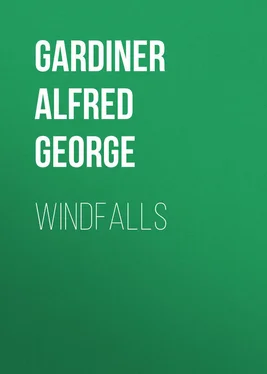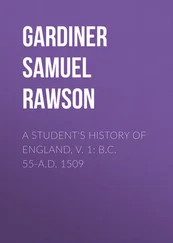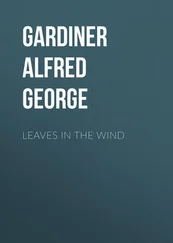Alfred Gardiner - Windfalls
Здесь есть возможность читать онлайн «Alfred Gardiner - Windfalls» — ознакомительный отрывок электронной книги совершенно бесплатно, а после прочтения отрывка купить полную версию. В некоторых случаях можно слушать аудио, скачать через торрент в формате fb2 и присутствует краткое содержание. Жанр: foreign_antique, foreign_prose, на английском языке. Описание произведения, (предисловие) а так же отзывы посетителей доступны на портале библиотеки ЛибКат.
- Название:Windfalls
- Автор:
- Жанр:
- Год:неизвестен
- ISBN:нет данных
- Рейтинг книги:3 / 5. Голосов: 1
-
Избранное:Добавить в избранное
- Отзывы:
-
Ваша оценка:
- 60
- 1
- 2
- 3
- 4
- 5
Windfalls: краткое содержание, описание и аннотация
Предлагаем к чтению аннотацию, описание, краткое содержание или предисловие (зависит от того, что написал сам автор книги «Windfalls»). Если вы не нашли необходимую информацию о книге — напишите в комментариях, мы постараемся отыскать её.
Windfalls — читать онлайн ознакомительный отрывок
Ниже представлен текст книги, разбитый по страницам. Система сохранения места последней прочитанной страницы, позволяет с удобством читать онлайн бесплатно книгу «Windfalls», без необходимости каждый раз заново искать на чём Вы остановились. Поставьте закладку, и сможете в любой момент перейти на страницу, на которой закончили чтение.
Интервал:
Закладка:
With five on the rope, however, our progress is slow, and it is two o’clock when we emerge from the chimney, perspiring and triumphant, and stand, first of the year, on the summit of the Pillar Rock, where the wind blows thin and shrill and from whence you look out over half the peaks of Lakeland. We take a second lunch, inscribe our names in the book that lies under the cairn, and then look down the precipice on the West face for signs of our late companions. The sound of their voices comes up from below, but the drop is too sheer to catch a glimpse of their forms. “They’re going to be late,” says George Abraham – the discoverer of the New West – and then he indicates the closing stages of the climb and the slab where on another New Year’s Day occurred the most thrilling escape from death in the records of the Pillar rock – two men falling, and held on the rope and finally rescued by the third. Of those three, two, Lewis Meryon and the Rev. W. F. Wright, perished the next year on the Grand Paradis. We dismiss the unhappy memory and turn cheerfully to descend by Slingsby’s Crack and the Old West route which ends on the slope of the mountain near to the starting point of the New West route.
The day is fading fast, and the moon that is rising in the East sheds no light on this face of the great tower. The voices now are quite distinct, coming to us from the left. We can almost hear the directions and distinguish the speakers. “Can’t understand why those lads are cutting it so fine,” says George Abraham, and he hastens our pace down cracks and grooves and over ledges until we reach the screes and safety. And now we look up the great cliff and in the gathering dusk one thing is visible – a figure in a white jersey, with arms extended at full stretch. There it hangs minute by minute as if nailed to the rocks.
The party, then, are only just making the traverse from the chimney to the right, the most difficult manoeuvre of the climb – a manoeuvre in which one, he in the white jersey, has to remain stationary while his fellows pass him. “This is bad,” says George Abraham and he prepares for a possible emergency. “Are you in difficulties? Shall we wait?” he cries. “Yes, wait.” The words rebound from the cliff in the still air like stones. We wait and watch. We can see nothing but the white jersey, still moveless; but every motion of the other climbers and every word they speak echoes down the precipice, as if from a sounding board. You hear the iron-shod feet of the climbers feeling about for footholds on the ringing wall of rock. Once there is a horrible clatter as if both feet are dangling over the abyss and scraping convulsively for a hold. I fancy one or two of us feel a little uncomfortable as we look at each other in silent comment. And all the time the figure in white, now growing dim, is impaled on the face of the darkness, and the voices come down to us in brief, staccato phrases. Above the rock, the moon is sailing into the clear winter sky and the stars are coming out.
At last the figure in white is seen to move and soon a cheery “All right” drops down from above. The difficult operation is over, the scattered rocks are reached and nothing remains but the final slabs, which in the absence of ice offer no great difficulty. Their descent by the easy Jordan route will be quick. We turn to go with the comment that it is perhaps more sensational to watch a climb than to do one.
And then we plunge over the debris behind Pisgah, climb up the Great Doup, where the snow lies crisp and deep, until we reach the friendly fence that has guided many a wanderer in the darkness down to the top of Black Sail Pass. From thence the way is familiar, and two hours later we have rejoined the merry party round the board at the inn.
In a few days it is all over. This one is back in the Temple, that one to his office, a third to his pulpit, another to his mill, and all seem prosaic and ordinary. But they will carry with them a secret music. Say only the word “Wastdale” to them and you shall awake its echoes; then you shall see their faces light up with the emotion of incommunicable things. They are no longer men of the world; they are spirits of the mountains.
TWO VOICES
Yes,” said the man with the big voice, “I’ve seen it coming for years. Years.”
“Have you?” said the man with the timid voice. He had taken his seat on the top of the bus beside the big voice and had spoken of the tube strike that had suddenly paralysed the traffic of London.
“Yes, years,” said big voice, crowding as much modesty into the admission as possible. “I’m a long-sighted man. I see things a long way off. Suppose I’m a bit psychic. That’s what I’m told. A bit psychic.”
“Ah,” said timid voice, doubtful, I thought, as to the meaning of the word, but firm in admiring acceptance of whatever it meant.
“Yes, I saw it coming for years. Lloyd George – that’s the man that up to it before the war with his talk about the dukes and property and things. I said then, ‘You see if this don’t make trouble.’ Why, his speeches got out to Russia and started them there. And now’s it’s come back. I always said it would. I said we should pay for it.”
“Did you, though?” observed timid voice – not questioningly, but as an assurance that he was listening attentively.
“Yes, the same with the war. I see it coming for years – years, I did. And if they’d taken my advice it’ ud have been over in no time. In the first week I said: ‘What we’ve got to do is to build 1000 aeroplanes and train 10,000 pilots and make 2000 torpedo craft.’ That’s what I said. But was it done?”
“Of course not,” said timid voice.
“I saw it all with my long sight. It’s a way I have. I don’t know why, but there it is. I’m not much at the platform business – tub-thumping, I call it – but for seeing things far off – well, I’m a bit psychic, you know.”
“Ah,” said timid voice, mournfully, “it’s a pity some of those talking fellows are not psychic, too.” He’d got the word firmly now.
“Them psychic!” said big voice, with scorn. “We know what they are. You see that Miss Asquith is marrying a Roumanian prince. Mark my word, he’ll turn out to be a German, that’s what he’ll turn out to be. It’s German money all round. Same with these strikes. There’s German money behind them.”
“Shouldn’t wonder at all,” said timid voice.
“I know,” said big voice. “I’ve a way of seeing things. The same in the Boer War. I saw that coming for years.”
“Did you, indeed?” said timid voice.
“Yes. I wrote it down, and showed it to some of my friends. There it was in black and white. They said it was wonderful how it all turned out – two years, I said, 250 millions of money, and 20,000 casualties. That’s what I said, and that’s what it was. I said the Boers would win, and I claim they did win, seeing old Campbell Bannerman gave them all they asked for.”
“You were about right,” assented timid voice.
“And now look at Lloyd George. Why, Wilson is twisting him round his finger – that’s what he’s doing. Just twisting him round his finger. Wants a League of Nations, says Wilson, and then he starts building a fleet as big as ours.”
“Never did like that man,” said timid voice.
“It’s him that has let the Germans escape. That’s what the armistice means. They’ve escaped – and just when we’d got them down.”
“It’s a shame,” said timid voice.
“This war ought to have gone on longer,” continued big voice. “My opinion is that the world wanted thinning out. People are too crowded. That’s what they are – they’re too crowded.”
“I agree there,” said timid voice. “We wanted thinning.”
Читать дальшеИнтервал:
Закладка:
Похожие книги на «Windfalls»
Представляем Вашему вниманию похожие книги на «Windfalls» списком для выбора. Мы отобрали схожую по названию и смыслу литературу в надежде предоставить читателям больше вариантов отыскать новые, интересные, ещё непрочитанные произведения.
Обсуждение, отзывы о книге «Windfalls» и просто собственные мнения читателей. Оставьте ваши комментарии, напишите, что Вы думаете о произведении, его смысле или главных героях. Укажите что конкретно понравилось, а что нет, и почему Вы так считаете.












